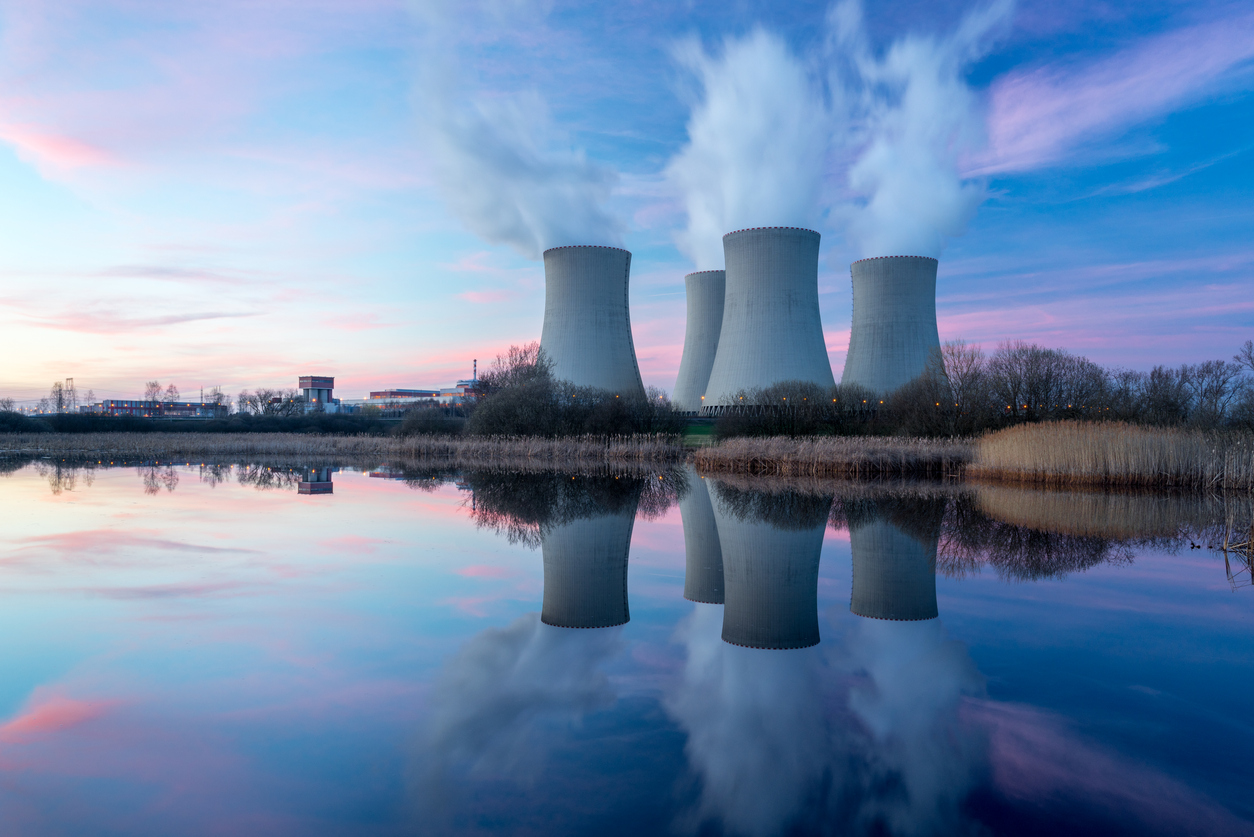Anyone who has downloaded the electricyMapp App which shows the carbon intensity of electricity consumption and production across Europe on an hourly basis will immediately see the impact and benefit of nuclear power.
With the exception of Iceland with its geothermal power and those Scandinavian countries with high levels of hydro power it is the presence or absence of nuclear which determines the level of carbon intensity and the harm being done to the environment. France, where 60% of electricity generation is from nuclear power consumes a quarter of the carbon intensity of Germany (even when the wind is blowing) following the early decommissioning of the German Konvoi fleet of nuclear reactors.
The Energy White Paper gave a welcome if general endorsement of the role of nuclear in the quest for net zero. The key obstacle to the renaissance needed in large scale nuclear power has been the question of finance. Private entities simply could not raise the necessary finance for the design and construction stage of such expensive projects using the Contracts for Difference mechanism in the United Kingdom given the long gap between investment and return. Funding the risks and costs associated with development, design, planning and construction before any electricity and revenue can be generated proved too much for the proposed British nuclear projects of Toshiba, Hitachi and Kepco, particularly in the aftermath of Brexit.
The cost of capital is known to add up to 40% to a nuclear project’s build cost. A finance model which reduces uncertainty over revenue receipts and accelerates return would provide a better credit rating for the project and therefore reduces the cost of finance. In addition to making the development of nuclear plants more likely, such a mechanism would save money in the long run for consumers. The nuclear industry has advocated the use of a regulated asset base (RAB) model for some time and have cited the use of such a model on other large infrastructure projects such as Thames Tideway Tunnel and the third runway at Heathrow as precedents.
Essentially, the RAB financing model includes part of the upfront costs of the nuclear new build plant on to the energy bills of consumers before electricity is generated.
The Nuclear Energy (Financing) Bill which looks to introduce a RAB model into the nuclear sector received its first reading in Parliament in October 2021. This was exactly two years following the closing of the consultation on a new RAB model instigated by BEIS. Whilst the delay in bringing this legislation to Parliament is regrettable the content of the Bill has generally been welcomed.
There were industry concerns at the time of the consultation that the construction and optimally the development process would be covered by the model and that the Office for Nuclear Regulation (ONR) would not be diverted from their nuclear safety role in regulating the finance model on behalf of consumers. These two concerns have largely been met.
The Bill is made up of the following parts:
What is a RAB financing model?
Part 1: Nuclear energy generation projects: regulated asset base model
The Secretary of State has the power to designate a nuclear company’s eligibility to benefit from a RAB special licence. The designation is made following consultation and is essentially premised on the project being advanced enough to merit designation and that it is likely to result in value for money. A nuclear company’s licence will be modified, if designated, to incorporate the RAB licence conditions.
Ofgem, not the ONR, will regulate the nuclear company based on the modified licence.
Part 2: Revenue collection contracts
The Secretary of State is empowered to make regulations in relation to revenue collection contracts, which includes the power to designate a revenue collection counterparty.
Payments made to the nuclear company are done by reference to allowed revenue based on forecasting which may be made prior to operation.
Following commissioning Ofgem is to determine a market revenue. This market revenue is deducted from the allowed revenue that the nuclear company is to receive over the charging period.
Part 3: Special administration regime
The risk of an Ofcom regulated nuclear company becoming insolvent is addressed by the Secretary of State, or Ofgem with the approval of the SoS, being able to apply to court for the appointment of a special or nuclear administrator with the objective of completing construction or operating the plant.
Part 4: Funded decommissioning
In a move to facilitate the secured interest funding of projects the provisions of the Energy Act of 2008 are amended in relation to the decommissioning of nuclear plants by clarifying what is meant by being “associated” with a licensed site operator. Holding shares, rights or powers in relation to the enforcement of security interests does not mean the creditor is associated with the site operator for the purpose of decommissioning.
What’s in the Bill?
COP26 showcased the utility of nuclear in achieving net zero particularly in the way the industry has demonstrated its flexibility in the future co-generation of hydrogen together with generating electricity for the grid. Additionally, the news of funding for the Rolls Royce small modular reactor (SMR) project has given increased hope to the sector. The Bill together with the Labour party’s support for it has given a further boost to new build nuclear and hopes for Britain hitting its net zero objectives.






